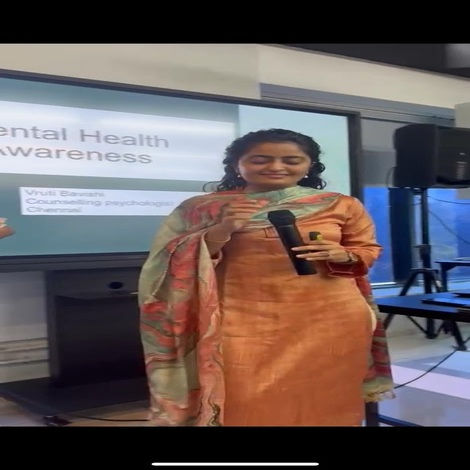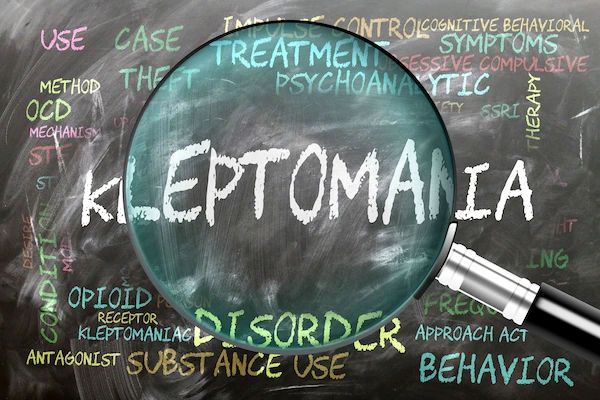Mental Health Perspective on Infidelity Healing and Understanding
Explore the mental health impact of infidelity, including emotional responses, coping strategies, and the path to healing for individuals and couples.

Written by Dr. Md Yusuf Shareef
Reviewed by Dr. Dhankecha Mayank Dineshbhai MBBS
Last updated on 13th Jan, 2026

Infidelity is often portrayed as a simple moral failure, a black-and-white issue of right and wrong. However, from a mental health perspective, it is a far more complex psychological event that can cause profound trauma for everyone involved. This article moves beyond judgment to explore the deep emotional undercurrents of cheating. We will delve into the psychological impact often termed betrayal trauma, examine the potential underlying mental and emotional causes, and outline a compassionate roadmap for healing. Whether you are trying to understand your own feelings, support someone else, or salvage a relationship, viewing infidelity through the lens of mental health provides crucial insights for navigating this challenging experience with greater clarity and self-care. Our goal is to foster understanding and guide you toward resources that can facilitate genuine recovery.
Defining Infidelity: Beyond the Physical Act
Infidelity isn't a one-size-fits-all concept. While society often defines it as a physical sexual act outside the relationship, a mental health perspective recognises that betrayal can take many forms.
• Emotional vs. Physical Infidelity
Emotional infidelity occurs when one partner invests significant emotional energy, intimacy, and confidential information into a relationship with someone other than their primary partner, often at the expense of the primary relationship. This can include deep online friendships, secret emotional connections, or any relationship that creates secrecy and emotional distance from one's partner. Physical infidelity is more straightforward but can be just as, if not more, damaging due to the breach of sexual exclusivity.
• The Subjective Nature of Betrayal
Ultimately, infidelity is defined by the broken agreements within a relationship. For some couples, watching pornography may be a violation, while for others, it's acceptable. The key is the breach of trust and the secrecy involved. Understanding that the pain stems from betrayed expectations, not just a specific act, is a critical first step in addressing the psychological impact.
The Psychological Impact: Understanding Betrayal Trauma
The discovery of an affair can trigger a seismic emotional event, often compared to experiencing a trauma.
For the Partner Who Was Cheated On
The affected partner often experiences symptoms mirroring Post-Traumatic Stress Disorder (PTSD), a condition known as betrayal trauma. This can include:
• Intrusive Thoughts: Vivid, unwanted mental images of the affair.
• Hyper-vigilance: Constantly being on high alert, checking a partner's phone, email, or social media.
• Severe Anxiety and Depression: Overwhelming feelings of sadness, fear, and hopelessness.
• Shattered Self-Esteem: Questions like "Wasn't I enough?" are common and can lead to a profound identity crisis.
For the Partner Who Had the Affair
The unfaithful partner is also navigating a difficult mental health landscape, though it manifests differently:
• Guilt and Shame: While guilt is feeling bad about an action, shame is feeling bad about oneself. Both are common and can be paralysing.
• Cognitive Dissonance: Struggling to reconcile their self-image as a "good person" with the hurtful actions they've committed.
• Their Own Underlying Issues: They may be struggling with untreated depression, anxiety, narcissistic traits, or past trauma that contributed to their behaviour, though this never excuses the choice to be unfaithful.
Consult Top Specialists
Underlying Causes from a Mental Health View
While never justified, infidelity is rarely only about sex or a lack of love. It is frequently a symptom of deeper issues.
• Individual Factors: The unfaithful partner may be grappling with low self-esteem, a need for validation, an inability to communicate needs, or unaddressed childhood trauma that affects their adult attachments. Sometimes, conditions like bipolar disorder (during manic episodes) or sex addiction can be contributing factors, though these require professional diagnosis.
• Relational Dynamics: Often, an affair is a sign that the relationship itself is ailing. This can include long-standing patterns of poor communication, emotional neglect, unresolved conflicts, or a lack of intimacy. The affair can be a maladaptive—and deeply hurtful—way of seeking connection or expressing unhappiness.
• Situational and Environmental Triggers: Life stressors like job loss, the death of a parent, or the transition to parenthood can create vulnerability. Similarly, opportunities, such as a new workplace dynamic or increased travel, can present situations where boundaries are more easily crossed.
The Path to Healing: A Mental Health Roadmap
Recovery is a process, not an event. It requires intention, time, and often, professional help.
• The Immediate Aftermath: The initial period is about stabilisation. This means ending the affair completely, practising radical honesty (answering questions without defensiveness, within reason), and giving each other space to process the shock. If you are experiencing severe depression or anxiety, consulting a therapist is crucial. Platforms like Apollo24|7 allow you to connect with a mental health professional online quickly for initial support and guidance.
• Individual Therapy:
For the Betrayed Partner: Therapy focuses on processing trauma, rebuilding self-worth, and managing overwhelming emotions.
For the Unfaithful Partner: Therapy is essential for exploring the "why," developing empathy, addressing underlying issues, and learning healthier coping mechanisms.
• Couples Counselling: Once each individual has some stability, couples counselling can begin. A therapist acts as a neutral guide to facilitate difficult conversations, rebuild destroyed trust, and establish new relational patterns. Success is not guaranteed, but counselling provides a structured environment to decide the relationship's future.
Conclusion
Viewing infidelity through a mental health perspective doesn't minimise the pain or excuse the behaviour. Instead, it provides a framework for understanding its profound complexity and charts a course out of the devastation. It shifts the question from "How could you do this to me?" to "What happened to us, and how can we heal?" Whether that healing leads to a reconciled, stronger relationship or a respectful separation, the focus is on processing the trauma and emerging healthier. The journey is undoubtedly one of the most difficult a person can face, but with compassion, support, and professional guidance, it is possible to move from a place of brokenness to one of renewed strength and peace. If you are struggling to cope, remember you don't have to do it alone. Consider reaching out to a therapist on Apollo24|7 to begin your healing journey in a safe, confidential space.
Consult Top Specialists
Consult Top Specialists

Dr. Anannya Roy
Psychiatrist
6 Years • MBBS, MD (Psychiatry)
Kolkata
VDC Clinic, Kolkata

Dr. Richa Kumari
Psychiatrist
10 Years • MBBS, DPM (Psychiatrist)
Bangalore
Apollo Clinic Bellandur, Bangalore
(175+ Patients)

Dr. Jinesh Shah
Psychiatrist
20 Years • MBBS, MRCPsych (UK), CCT in Adult Psychiatry (UK), CCT in Child and Adolescent Psychiatry (UK), PG Diploma in Clinical Psychiatry (UK), Cert Hypnotherapy (UK).
Ahmedabad
Apollo Speciality hospital, Ahmedabad, Ahmedabad
(150+ Patients)

Ms. Vruti Bavishi
Psychologist
8 Years • M. Sc, Counselling psychology
Chennai
Apollo First Med Hospitals P H Road, Chennai
Ms. Aleena Babu
Clinical Psychologist
5 Years • M.Sc Clinical Psychology
Bengaluru
Apollo Clinic, Sarjapur Road, Bengaluru
Consult Top Specialists

Dr. Anannya Roy
Psychiatrist
6 Years • MBBS, MD (Psychiatry)
Kolkata
VDC Clinic, Kolkata

Dr. Richa Kumari
Psychiatrist
10 Years • MBBS, DPM (Psychiatrist)
Bangalore
Apollo Clinic Bellandur, Bangalore
(175+ Patients)

Dr. Jinesh Shah
Psychiatrist
20 Years • MBBS, MRCPsych (UK), CCT in Adult Psychiatry (UK), CCT in Child and Adolescent Psychiatry (UK), PG Diploma in Clinical Psychiatry (UK), Cert Hypnotherapy (UK).
Ahmedabad
Apollo Speciality hospital, Ahmedabad, Ahmedabad
(150+ Patients)

Ms. Vruti Bavishi
Psychologist
8 Years • M. Sc, Counselling psychology
Chennai
Apollo First Med Hospitals P H Road, Chennai
Ms. Aleena Babu
Clinical Psychologist
5 Years • M.Sc Clinical Psychology
Bengaluru
Apollo Clinic, Sarjapur Road, Bengaluru
More articles from Mental Health
Frequently Asked Questions
1. Can a relationship ever truly recover from infidelity?
Yes, many relationships not only recover but become stronger. However, it requires immense work from both partners: full honesty from the unfaithful partner, a willingness to forgive (which is a process) from the betrayed partner, and often, the guidance of a qualified couples therapist to navigate rebuilding trust.
2. Is it normal to have PTSD-like symptoms after discovering an affair?
Absolutely. Betrayal trauma is a recognized response and can include symptoms like hyper-vigilance, intrusive thoughts, and severe anxiety. It's a normal reaction to an abnormal, traumatic event. If these symptoms persist and disrupt your life, seeking therapy is strongly advised.
3. What are the signs of emotional infidelity?
Signs include: sharing intimate personal details with someone else that you hide from your partner, constant private messaging, downplaying the significance of the relationship, feeling more emotionally connected to this person than your partner, and a growing emotional distance in your primary relationship.
4. Should we go to therapy together immediately after the affair is discovered?
Not usually. It's often recommended that each partner start with individual therapy to process their own emotions and gain stability first. Entering couples counselling too early, while emotions are raw, can sometimes be counterproductive.
5. How long does it take to get over being cheated on?
There is no standard timeline. Healing from betrayal trauma is a personal journey that can take months or even years. It's less about 'getting over it' and more about integrating the experience into your life story and learning to trust again, either yourself, your partner, or future partners.



.webp)
